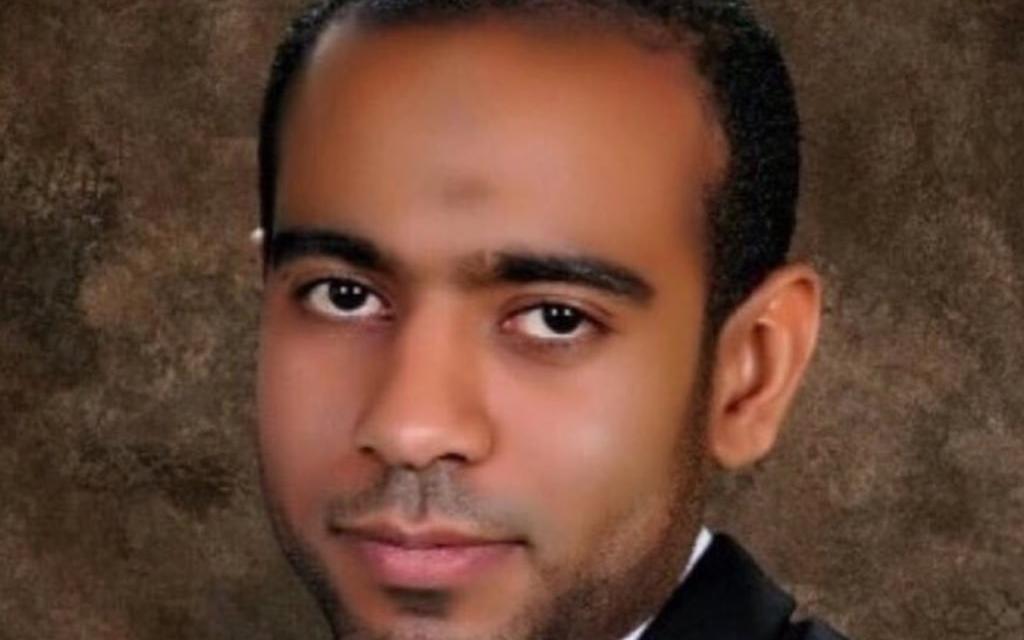Husain Ebrahim Ahmed is a 28-year-old Bahraini who was arrested in 2015. Since then Husain has been forcibly disappeared, subjected to an unfair trial and brutal torture, and denied healthcare by Bahraini authorities.
On 29 August 2015, officers in plain clothing, officers from the Special Security Force Command (SSFC), and officers from the Ministry of Interior (MoI) beat and arrested Husain and four of his friends (who were in the house at the time), without a warrant, for charges related to the August 2015 Karrana bombing, which killed a security official and injured civilians. The officers put Husain in handcuffs, blindfolded him, and took him to the Criminal Investigations Directorate (CID), where he was held for three weeks before authorities transferred him to solitary confinement at Dry Dock Detention Center, where he was forcibly disappeared for a further (approximately) 40 days.
The charges brought against Husain were ambiguous and tried under the broader case of the bombing, with 31 other defendants. The primary charges were membership in a terrorist cell, attempted murder, and illegal assembly. On 1 February 2018, Ahmed was sentenced to life in prison, had his citizenship revoked, and was transferred to Jau Prison. Authorities also willfully excluded exculpatory evidence from the trial (footage from an ATM), which Husain requested.
During his detention, authorities interrogated, tortured, and deprived Husain of water, sleep, and appropriate medical care in order to coerce a confession. He was also not permitted to meet with legal counsel, and was not brought before a judge within 48 hours of the arrest. Methods of torture and ill-treatment included beatings, long periods of forced standing, insults, and preventing Husain from showering, praying, or using the bathroom. As a result of the torture, Husain confessed to the charges, and has suffered severe detriment to his health. Despite frequent requests to see a doctor after one visit to al-Qalaa Hospital, he has only been sent to the Dry Dock Detention Center Clinic.
His diabetes has also worsened and he is now required to take insulin shots to manage the condition when oral medication had previously sufficed. Husain is currently in Jau Prison and has expressed concern about a skin condition which has spread throughout his cell, and has the potential to progress to gangrene. After three weeks of complaints, inmates were prescribed a medication for scabies, which did not alleviate their suffering. Numerous complaints about Husain’s treatment in prison were also filed with the MoI Ombudsman, the National Institute for Human Rights (NIHR), and the prison administration, but none received a response. Husain’s health continues to deteriorate as a result of the torture, neglect, and sporadic administration of his medication by prison officials.
Because authorities failed to bring Husain before a judge within 48 hours of his arrest, denied him access to legal counsel, subjected him to torture to produce a confession, and excluded exculpatory evidence, Bahrain has violated its obligations under international law, including provisions in the Universal Declaration of Human Rights (UDHR) and the International Covenant on Civil and Political Rights (ICCPR). Bahraini authorities also subjected Husain to torture and denied him medical care, violating both the International Covenant on Economic, Social and Cultural Rights (ICESCR) and the Convention against Torture and Other Cruel, Inhuman or Degrading Treatment or Punishment (CAT). Bahrain’s treatment of Husain and his fellow prisoners while in detention also violates the standards delineated in the United Nations Standard Minimum Rules for the Treatment of Prisoners (Mandela Rules).
Americans for Democracy & Human Rights in Bahrain (ADHRB) calls upon Bahrain to uphold its human rights obligations by retrying Husain’s case and ensuring that any subsequent trial is consistent with due process and fair trial rights. We additionally urge the Bahraini authorities to investigate claims of torture and denial of medical treatment and to hold the responsible officials accountable.





